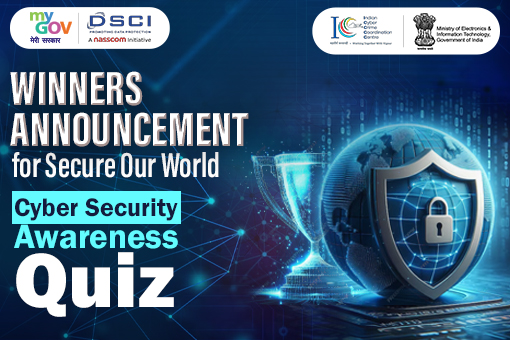Renewing commitment to democratic principles

The International Day of Democracy is an appropriate moment for us to re-dedicate ourselves to upholding the values of our parliamentary democracy by fostering open dialogue, encouraging civic engagement, and holding institutions accountable.
The International Day of Democracy, observed annually on September 15, is a celebration of democratic principles and values globally. Started by the United Nations in 2007, this day aims to promote and uphold the importance of democracy in ensuring human rights, peace, and sustainable development.
India’s democratic roots can be traced back to the Vedic period, where assemblies like the sabha and samiti embodied early democratic principles. These institutions allowed for collective decision-making within the community. Around 600 BCE, republics known as gana sanghas emerged, exemplifying democratic governance. Notable republics such as Vajji and Malla were governed by elected councils and leaders, emphasising public participation and shared decision-making. Our ancient texts provide evidence of these practices, underscoring India’s long-standing tradition of governance through discussion, consensus, and inclusion. It is a matter of great pride for us that we have successfully established democratic values and ideals in the world in spite of our great geographical, linguistic, and other diversities.
Our journey with modern parliamentary democracy began with our Independence in 1947. The adoption of our Constitution in 1950 officially established our country as a sovereign and democratic Republic. Over the years, our democracy has evolved through key political and social developments, including the integration of the princely states, economic reforms, and the growing influence of regional political parties. Despite many challenges, we continue to stand strong as the world’s largest democracy, consistently working to uphold our democratic values and principles even as many countries which attained independence at the same time could not remain functioning democracies. That we could navigate through the diverse challenges even as a nascent country bears testimony to our resilience as a country with democratic roots.
India is a country where democracy permeates institutions, from the village to the national level. These democratic institutions enjoy constitutional status at all levels. It is indeed our great achievement that democracy has reached the grassroots level.
The Azadi Ka Amrit Mahotsav was a grand celebration marking 75 years of our Independence. The celebration of democracy during the Azadi Ka Amrit Mahotsav has ushered in Amrit Kaal, a transformative era spanning 2022 to 2047 that aims to propel India towards becoming Viksit Bharat. It underscores the importance of collective responsibility, youth empowerment, and national pride. Amrit Kaal seeks to build upon India’s rich democratic legacy, ensuring inclusive growth and sustainable development for all.
At the dawn of the Amrit Kaal, India had the opportunity to host the G20 Summit. As the world’s largest democracy, India’s presidency of the G20 in 2023 showcased our growing influence on the global stage. The summit, appropriately themed “One Earth, One Family, One Future,” emphasised inclusive and sustainable development, reflecting India’s democratic values of equality and collective progress. The Ninth G20 Parliamentary Speakers’ Summit (P20), held in October 2023, underscored the nation’s role in promoting democratic values and international parliamentary cooperation. At the P20 Summit, India provided a platform for parliamentary leaders from G20 nations to discuss and address global challenges collectively. A pre-summit conference was also organised where the parliaments of the world re-emphasised their commitment towards Lifestyle for Environment (LiFE).
Each year, International Day of Democracy is observed with a specific theme that seeks to address current challenges and opportunities for democratic governance. This year the theme is “Artificial Intelligence as a Tool for Good Governance”, emphasising the potential of Artificial Intelligence (AI) to enhance democratic processes. It also highlights the importance of effective governance to mitigate the risks associated with AI, including misinformation and deepfakes. By focusing on AI, this year’s theme encourages a global dialogue on how technology can be harnessed to strengthen democratic institutions across the globe.
It is a matter of great satisfaction that India is leveraging AI to revolutionise governance and public services. Initiatives such as IndiaAI support AI start-ups and aim to establish AI centres of excellence. AI is being used to enhance data-driven decision-making, improve citizen services, and streamline administrative processes. Platforms like the Aadhaar Enabled Payment System (AePS) facilitate banking services for citizens using biometric authentication. These efforts reflect India’s commitment to using AI for more efficient, transparent, and inclusive governance.
India’s new Parliament building integrates advanced technologies to enhance its functionality and efficiency. One of the key features is the Digital Sansad platform, which uses AI for real-time translation of House proceedings in languages in the Eighth Schedule of the Constitution of India to improve accessibility and inclusivity. The building also employs AI-driven facial recognition and biometric systems to ensure secure and efficient access. Additionally, AI-powered tools are being conceived to facilitate seamless communication between members of Parliament, government officials, and citizens, promoting transparency and efficiency. These innovations reflect our commitment to leveraging technology for better governance and democratic processes.
In order to strengthen the democratic values in our country and other countries, it is crucial that we give our youth adequate opportunities to ensure their active participation in democratic processes. AI and technology can play an important part in this. The Parliamentary Research and Training Institute for Democracies (PRIDE) of our Parliament has made significant contributions to this end. PRIDE has, so far, successfully conducted training and appreciation courses for parliaments of more than 100 countries in the world. It also facilitates study visits of school and college students to the Parliament House, where they are briefed about the functioning of Parliament.
The International Day of Democracy is an auspicious occasion to celebrate and cherish the lofty democratic ideals and principles that underpin our societies, the advancements in freedom, equality, and justice, while acknowledging the challenges that persist. It is also an appropriate moment for us, all stakeholders, to reflect and re-dedicate ourselves to upholding the values of our parliamentary democracy by fostering open dialogue, encouraging civic engagement, and holding institutions accountable. As we reflect on the significance of this day, let us all pledge to participate actively in the democratic process of our country and collaborate to create a just and equitable society for all.
Om Birla is Speaker, Lok Sabha.





